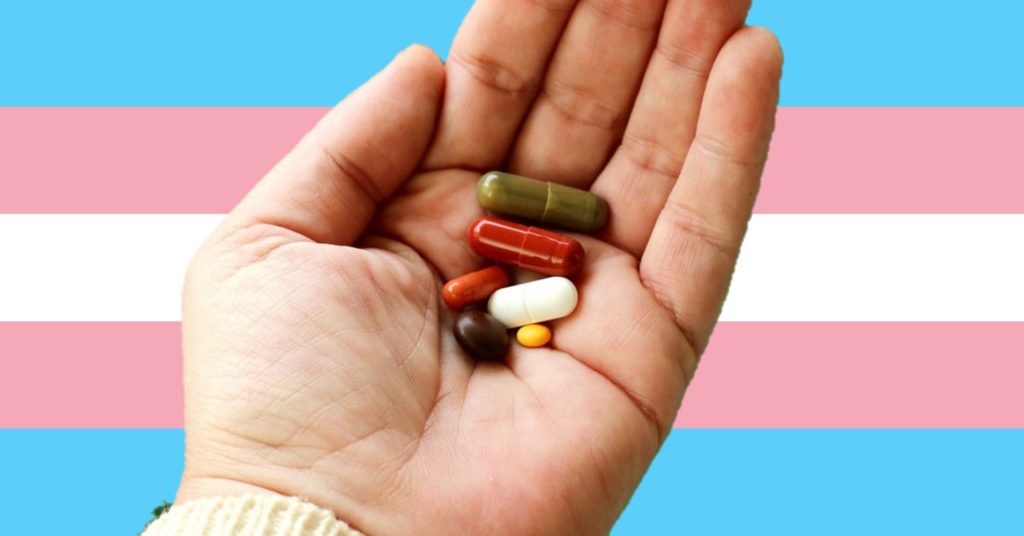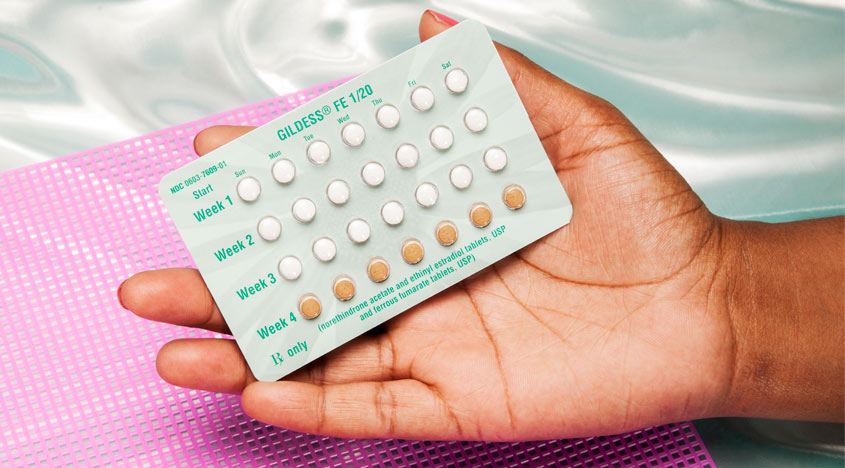Hold Your Hormones!: The Hidden Struggle of M’sian Transgender People

By Ahmad Yasin |23 Sept, 2020
“Maaflah terlupa apa nak kata, makan banyak sangat hormon,” I kept recalling the joke made by one of the trans activists in Malaysia as I started to establish a relationship through the interactions I have with the trans community.
Hormones play a significant role in the formation of trans livelihood. For trans women, apart from the sexual reassignment surgeries, hormone therapy is a journey to be embarked in the strive for feminisation.
I found myself in the companion of social workers of SEED Foundation one afternoon after their daily food distribution for the community of Chow Kit. They recollected the tales of abuse faced by sex workers, the deaths of trans individuals by heartbreaks and at the hands of vengeful lovers, and the rise in drug use by city youth due to an ominous yet systematic operation of the underground gangster conglomerate.
As our conversation got a lot livelier, I was fascinated by the topic brought up on trans women’s usage of hormones to achieve femininity.
Sex reassignment treatment is a delicate matter. While surgeries are the primary issue often brought up in the discourse on sex reassignment treatment, transgender hormone therapy is as significant. What is rather unfortunate is that the handling of hormone therapy in Malaysia is dire.
In recent times, many of the hormone medications trans women relied on had been discontinued by the Malaysian government. Medications such as anti-androgens used by prostate cancer patients to suppress the growth of cancer have also been used by transwomen to lower their testosterone production. Subsequently, male secondary sexual characteristics such as facial hair which is not necessarily wanted by them can be reduced.
Alternatively, although it is not optimal, underprivileged trans women will also opt for birth control pills. Trans women are aware of oestrogen’s effect and its usage as a form of hormone therapy for male to female trans individuals. However, due to the shortage of its access in Malaysia, many of them turn to birth control pills with the hope that the oestrogen content within the pills would have the same result. It should be noted that birth control pills are not exactly the same as prescribed oestrogen as a form of therapy and medication.

The differences in content combination and dosage signified the differences in usage. But without the availability of the hormone therapy itself, precautions are often not given prioritisation.
The lack of access and care for trans individuals, particularly within the scope of health and wellness birthed a detrimental capitalistic climate for them. Private clinics in areas with a heavy concentration of trans individuals, particularly those underprivileged, will often provide illegal hormone injections.
Nonetheless, such clinics are purely for-profit, and they may not provide the necessary blood test to monitor the compatibility of the hormones with the trans individuals. The intensive blood monitoring may be provided by private hospitals, although, for many trans individuals, it is not quite affordable.
The health authorities of the private hospitals do include a written prescription for the needed hormones but do not provide the hormones themselves.
Surprisingly, hormones are available at ease through 15 ringgits pills obtainable through the mainstream online market. Shipped from the motherlode of genericity, pills are labelled with unidentifiable Chinese scripts that even the Chinese individuals consulted by trans individuals to translate failed to understand.
Consumption without knowledge will inevitably bear fruit. In a few weeks, the trans women do form breasts, and their hips will be more rounded as per wishes, but in many cases, the same individuals would develop complications.
Without intensive monitoring of blood tests, trans individuals consuming the hormone pills on their own will face bone weakening, and for the few of them that smoke, they face an increased risk of developing cardiovascular complications and even worse, death.
Discrimination against the trans community is not limited only to hate crime and criminalisation. When trans individuals are not given much prioritisation within the realm of health on trans specific issues, they are subjected to systematic oppression that will lead to the deterioration of their condition.
Should they be left to their own devices on formulating ways to help themselves, the nation is responsible for the crime of neglection.
Advocacy for the rights of the trans community will always include the right for trans individuals to receive treatment and therapy as a reflection to the visibility of them as a valid gender identity.
Until then, semoga kita terus berbakti.
Ahmad Yasin is a student currently interested in writing on the condition of LGBT communities, particularly trans women. He’s also interested in the effort of being an educative front for LGBT-related issues.
An earlier version of this article was first published on Malay Mail.

